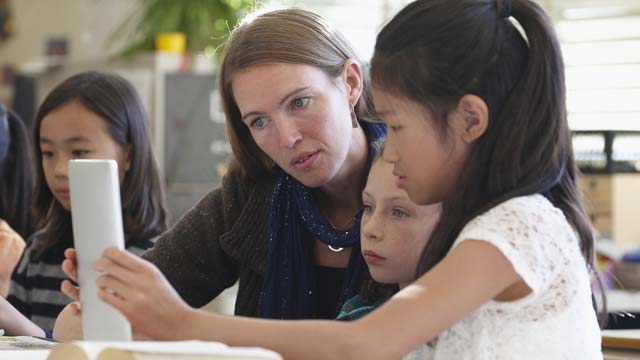85% of teachers believe the national curriculum is not doing enough for child internet safety

According to research conducted by AVG Technologies 85% of teachers believe that internet safety should be taught as part of the national curriculum, with half agreeing that schools should provide better training on using the Internet as an educational tool.
As part of a panel discussion with TrustedReviews Will Gardner explained that the national curriculum is not totally failing “There is quite a lot being done in the national curriculum in terms of children’s safety and the internet. Computing will have a common thread of e-safety (electronic safety) in all four key stages from key stage one till the end of school.”
E-safety refers to more than just keeping children away from inappropriate content like porn. It covers privacy issues, sexting, cyber-bullying, contacting strangers and much more.
In fact the UK seems to be leading the way with Ofsted increasing the importance of e-safety, but more needs to be done. “Schools really do want to get involved and there is a strong motivation not just from the curriculum, but from Ofsted which increasingly has e-safety as a part of its inspection framework.
However, the curriculum is too broad to cover some of the more important elements of e-safety in its current form. While it covers keeping information private and knowing where to report issues that arise, Mr Gardner believes it “doesn’t cover the more social aspect around cyber bullying, sexting, respect of other – the conduct element of it. That sits under PSHE (Personal, Social and health Education) and citizenship we want to encourage e-safety into many areas of the curriculum. It is important, for example, to know how to make a good and safe search online – this could be taught in history class.”
“Today’s teachers are not only using the Internet regularly as part of their lessons, they are increasingly having to deal with the wider issues it generates and quite often, without any formal training,” said Tony Anscombe, Senior Security Evangelist, AVG Technologies. “With the next advancement in technology just around the corner schools – and Ofsted – are faced with a difficult task trying to keep up with these developments. With the curriculum in schools updated at a slower rate than technological change, Ofsted need to do more to ensure children are protected from the latest threats as the digital world evolves.”
The survey was based on 1,760 teachers in primary and secondary education in the Australia, Brazil, Canada, Czech Republic, France, Germany, New Zealand, the United Kingdom and the United States.
For more information on children’s internet safety read Tony Anscombe’s One Parent to Another free ebook


